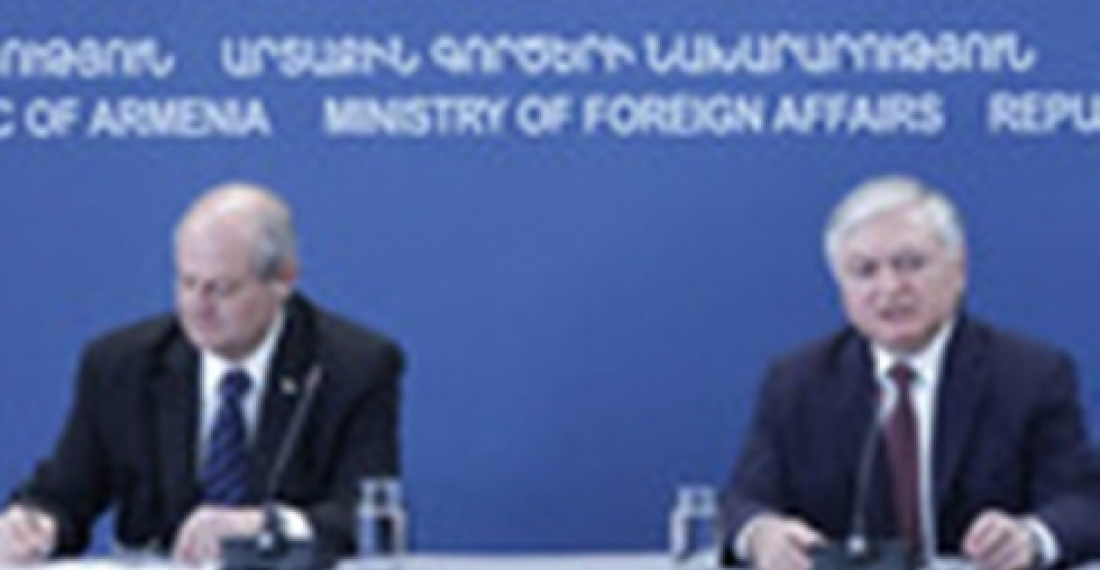The Foreign Minister of Armenia Edward Nalbandian has given an interesting reply couched in diplomatic words full of nuances when answering a question about events in Ukraine during a joint press conference with the Foreign Minister of Serbia, Ivan Mrkic, in Yerevan yesterday. The Minister stated that Armenia is "hopeful that all possible steps are undertaken to find a peaceful settlement in the legal field which will contribute to the decrease of tension and resolution of pending questions".
The Armenian Foreign Ministry website carried a transcript of the press conference, including the following questions and answers on Ukraine
Public Radio- Mr. Minister, what is the Armenian position on the developments taking place in Ukraine. There are publications in our media that there is no even a message written in the name of Armenia in the Condolence Book opened in the Embassy of Ukraine. Will you clarify why?
Edward Nalbandian- I think these are useless and meaningless manipulations because the Foreign Ministry has expressed its condolences to Ukraine and the people of Ukraine by the press secretary. It occurred one-two days before the opening of the Book of Condolence. On the opening of the Book, the Foreign Ministry received a note from the Embassy of Ukraine in Yerevan registered on February 24, i.e. the following day of the opening.
On the same day the representative of the Ministry had a telephone conversation with the Ambassador of Ukraine and the Ambassador expressed understanding that the note was delivered with delay.
As for our position and approach on the processes in Ukraine it has been expressed on the highest level, the President has spoken about it.
We are hopeful that all possible steps are undertaken to find a peaceful settlement in the legal field which will contribute to the decrease of tension and resolution of pending questions.
Radio Liberty - Mr. Minister, Armenia as well as Russia is a member of the CSTO. I have two questions on Ukraine crisis. Has the crisis been discussed in the framework of the CSTO and if it is discussed what will be the Armenian position? Thank You.
Edward Nalbandian- I usually do not like using the word "if" much in any case. Of course, it is reasonable that there are many questions discussed in the framework of the CSTO, because there is consent to coordinate the foreign policy in this format. When there are such discussions then we will see what developments would take place, and the appropriate positions will be expressed.
source: commonspace.eu with www.mfa.am
photo: The Foreign Ministers of Serbia and Armenia at a joint Press Conference in Yerevan on 10 March 2014 (picture courtesy of the Armenian Foreign Ministry press service).







